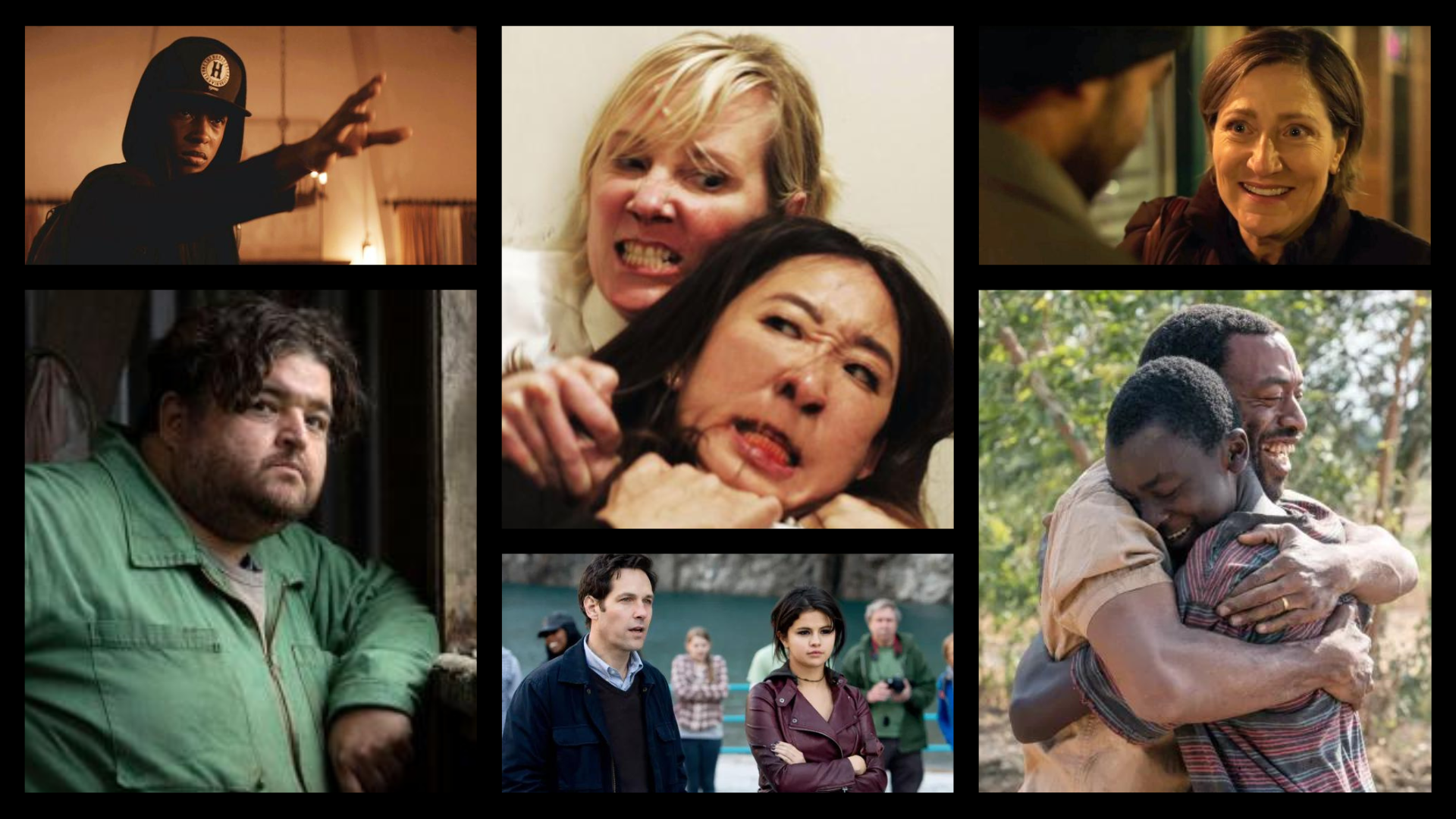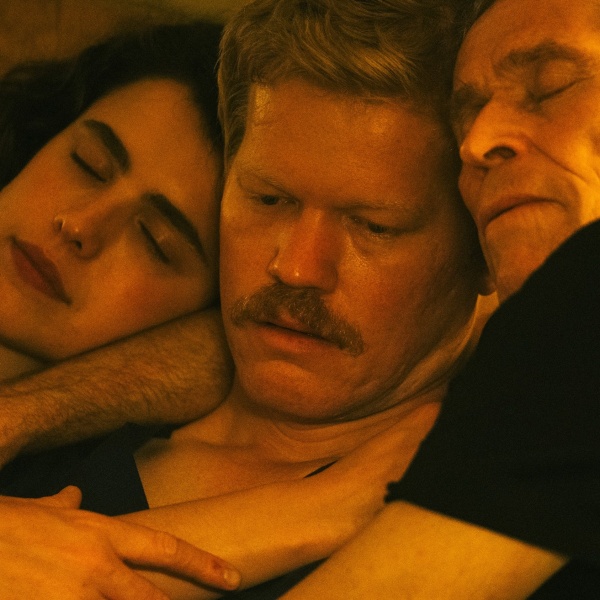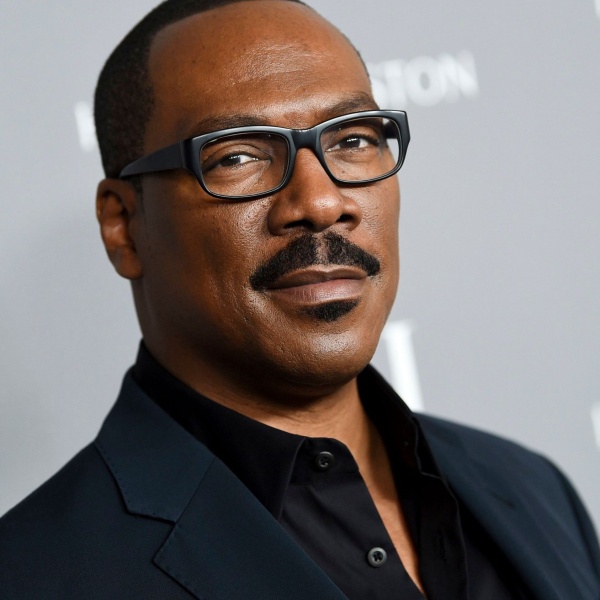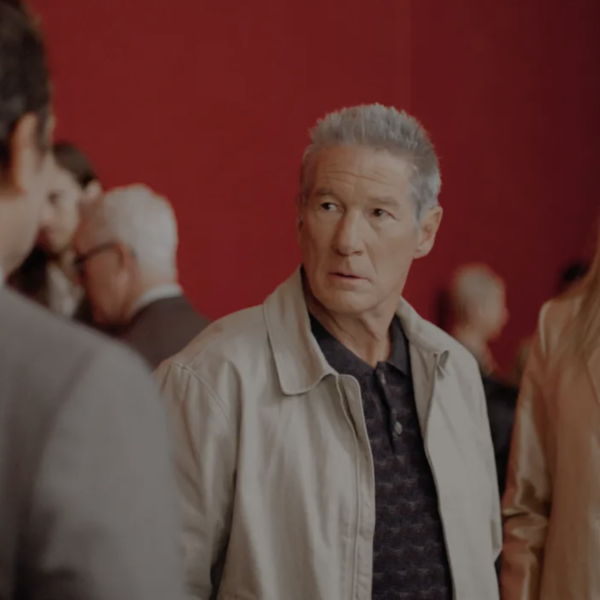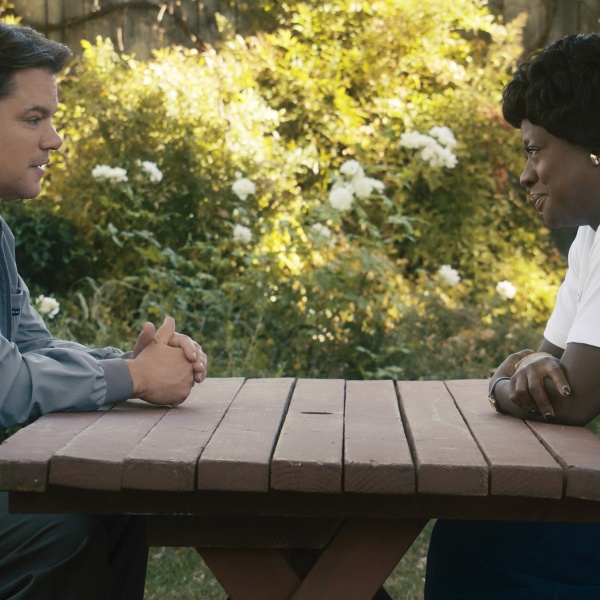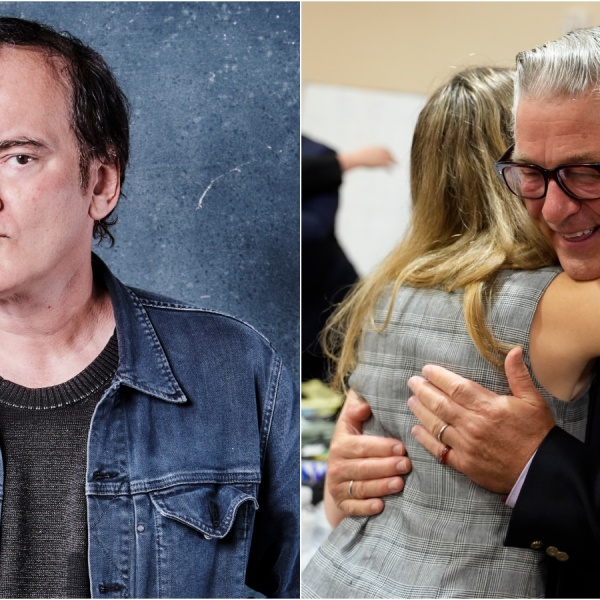There’s no shortage of movies to stream on Netflix. Any subscriber that logs onto the platform these days will likely see a bunch of new releases, gruesome horror films, and sweet rom-coms. But with so many big, flashy studio films and Netflix originals to choose from, it can be difficult for the indie films that flood the streamer to stand out.
For sure, a place in Netflix’s library can be a great opportunity for independent cinema to find an audience it otherwise wouldn’t reach in theaters or on television. But for all the big starry auteur films that Netflix picks up and turns into major awards contenders (see “Marriage Story” or “I’m Thinking of Ending Things”), there’s an under-the-radar, overlooked pick that doesn’t have the names or prestige attached to it, and feels destined to serve as mere library filler as people look for the films they do know. That’s where this running guide will (hopefully) come in handy for curious cinephiles looking to dig deeper into the vast assortment of titles currently available on Netflix, handpicking a few of the best without the buzz they deserve.
IndieWire already has a running list of the overlooked Netflix original movies you need to stream, but below are the indie films that went largely unnoticed by moviegoers in theaters and now need a second chance on streaming. As of November 2023, the streamer has plenty of incredible, hidden gem selections including thrillers like “Piercing” and “Emily the Criminal” and teen films like “The Half of It” or “Alex Strangelove.” For laughs, there are great comedies and dramedies like “Mr. Roosevelt” and “The Fundamentals of Caring,” while those seeking something more serious can check out treasures like “Tigertail” and “Residue.” And there are plenty of good foreign language selections to choose from as well, including “I’m No Longer Here” or, conversely, “Nobody Knows I’m Here.”
Read on for our list of the 30 best, most overlooked independent films currently streaming on Netflix. Entries are listed in no particular order.
Zack Sharf contributed to this story. [Editor’s note: This list was originally published in August 2021, and has since been updated multiple times.]
-
“Whiplash” (2014)

Image Credit: ©Sony Pictures/Everett Collection / Everett Collection Damien Chazelle made his feature debut in 2009 with “Guy and Madeline on a Park Bench,” but the director truly broke through in 2014 when he made “Whiplash,” which turns the typical teacher-student mentorship film into a tense, nerve-racking thriller. Miles Teller stars as aspiring jazz drummer Andrew, whose dream of attending a prestigious New York City conservatory turns into a nightmare thanks to his overbearing, abusive instructor Fletcher (JK Simmons). Simmons is charismatically loathsome in the role, but what makes “Whiplash” really pop is that Andrew is as single-minded and stubborn as Fletcher is demeaning and cruel — and the friction between the two is so spectacular that its dramatically unclear which will snap first. Add in a gorgeous score and laser-focused direction from Chazelle and you have a film that makes beautiful music. —WC
-
“It Follows” (2014)

Image Credit: Everett Collection / Everett Collection It’s an age-old trope that anyone who has sex in a slasher is doomed to die; “It Follows” makes that a bit more literal than most movies. David Robert Mitchell’s film stars Maika Monroe as Jay, a teenager who loses her virginity to her boyfriend and gets targeted by an entity that pursues young people who have sex. A divisive title thanks to its slow, psychological approach to its seemingly lurid premise, “It Follows” nonetheless holds together thanks to Monroe’s strong central performance and Mitchell’s controlled, powerful direction. —WC
-
“Lady Bird” (2017)

Image Credit: Courtesy Everett Collection “Lady Bird” is a film that’s so sharply observed it’s hard not to see your own life in it. Often called a semi-autobiographical project (Greta Gerwig herself said the film is based only on a “core of truth” from her childhood), “Lady Bird” throws the viewer into the minutia of Saorise Ronan’s listless Sacramento high schooler and her day-to-day with utter confidence, capturing a certain teen self-obsession that’s both irritating and endearing but mostly extremely recognizable. Gerwig got her start acting in low-budget indies, and although “Lady Bird” has a more polished sheen than those projects, her roots can be seen in the way the film flows from vignette to vignett in the deftly written dialogue between Lady Bird and the people in her orbit, and in the film’s naturalistic approach to the clichés of high school movies. It’s one of the defining films of its decade, and helped establish the “house style” A24 has become known for, but it’s also ageless. As long as people keep growing up, “Lady Bird” will keep finding new fans. —WC
-
“Frances Ha” (2012)

Image Credit: ©IFC Films/Courtesy Everett Collection “Frances Ha” was the first film Greta Gerwig wrote with her romantic and artistic partner Noah Baumbach, and although Baumbach directed solo, you can still hear the voice and vision Gerwig would would bring to “Lady Bird,” “Little Women,” and her eventual commercial triumph “Barbie;” that “what I want” monologue? All Greta. Gerwig stars in the rambling comedy as the titular mid-20s dancer Frances, whose comfortable not-quite adult life is disrupted when best friend Sophie (Mickey Sumner) moves out of their apartment, forcing her to find new living. As she moves between apartments and job opportunities, Frances is forced to consider who she really is and what she wants her life to be. It’s a sweetly funny, slightly sad film about growing up and making a life that’s your own. —WC
-
“Kicking and Screaming” (1995)

Image Credit: ©Trimark Pictures/Courtesy Everett Collection Before he was getting Oscar nominations for scenes where Scarlett Johannson and Adam Driver yell at each other — or, more recently, co-writing the script to the “Barbie” movie — Noah Baumbach made his feature directorial debut with “Kicking and Screaming.” Not to be confused with the raunchy 2005 comedy about Will Ferrell coaching a children’s soccer team, Baumbach’s low-key but sharp debut focuses on a group of college graduates who stick around their university’s town out of fear of facing the real world. Josh Hamilton, years before he became one of cinema’s best dads in “Eighth Grade,” leads the cast as the slacking writer Grover, whose blasé approach to growing up is thrown out of order when his girlfriend Jane (Olivia d’Abo) accepts a fellowship in Prague and leaves him in his arrested development.
Grover’s struggles to grow up gives the ambling character study its backbone, and the movie briefly flirts with becoming a rom-com at times, complete with an impassioned airport speech as its climax. But the movie is so drenched in the ennui of its not-quite adult ensemble — which includes Chris Eigeman, Carlos Jacott, Parker Posey, and Eric Stotlz, with Elliot Gould as Grover’s dad — that it never quite gets there. It instead remains a modest and low-stakes film, just one with a killer script that perfectly captures the awkard, hazy transitional phases that make growing up so hard. —WC
-
“Emily the Criminal” (2021)

Image Credit: screenshot A nasty crime thriller about how economic uncertainty can push people to desperate extremes, “Emily the Criminal” might sound like a comedy from its title, but it takes the title character’s arc extremely and totally seriously. Aubrey Plaza stars as Emily, a former art student whose college debt and a felony charge prevents her from escaping the drudgeries of service work. When a coworker connects her to a credit card fraud ring, Emily leaps at the opportunity to make some fast cash, and under the tutelage of organizer Youcef (Theo Rossi), she quickly realizes she’s a natural at the unsavory line of work. The screenplay is occasionally a bit silly, but John Patton Ford’s feature directorial debut shows great promise, and Plaza’s charismatic performance as an ordinary woman with a surprising capacity for violence and crime is damn near faultless. —WC
-
“I’m No Longer Here” (2019)

Image Credit: ©Netflix/Courtesy Everett Collection Writer/director Fernando Frias de la Parra emerged as one of the freshest new voices in Mexican cinema with “I’m No Longer Here.” The 2019 film follows the leader of a street gang in the mountains of Monterrey, Mexico, who is struggling to assimilate into his new home in Jackson Heights, Queens after learning his gang and Kolombia culture is under threat. It was Mexico’s official entry for the 2020 Oscar’s Best International Feature category, but did not make the final list of five nominees. However, “I’m No Longer Here” did manage to get the support of two notable fans: Alfonso Cuarón and Guillermo del Toro.
“It’s a film that doesn’t really have a reference in Mexican cinema before,” Cuarón said in 2020. “It’s a film that challenges the ideas of formalism to create its own cinematic narrative that are completely supported in time and space… Because of that it’s a film about identity… and the certainty of our identities, the defense of our identities. The challenge of how supported our identities are, how much our identities are based upon an external façade. That’s a reason it’s truly universal.” —CZ
-
“Mr. Roosevelt” (2017)

Image Credit: Everett Collection Among the many pleasures of “Mr. Roosevelt,” a low-key landmark in progressively reimagining the Manic Pixie Dream Girl, is that it can be enjoyed with the full confidence of knowing that it won’t feel like “Garden State” in 10 years. Written and directed by Noël Wells, whose dismissal from “Saturday Night Live” now seems to be a blessing in disguise, “Mr. Roosevelt” is a sweet and shaggy comedy about someone who needs to renovate their idea of home. It’s a reminder that the 21st century is going to be full of coming-of-age films about 30-year-olds, and it’s compelling evidence that that might be alright. Wells stars as a Texas native who returns home to say goodbye to her cat and is forced to come to terms with her past while staying with her ex-boyfriend and his new girlfriend. In an age when it feels like 50% of all indie features and television shows are about struggling comedians, “Mr. Roosevelt” is clearly not trying to reinvent the wheel, but it gets pretty damn close to perfecting it. —ZS
-
“Tigertail” (2020)

Image Credit: Everett Collection Alan Yang made an impressive jump from television (he was a writer on “Parks and Recreation” and co-created “Master of None” with Aziz Ansari) to film with his feature directorial debut “Tigertail,” a slow-burn immigrant drama with visual polish to spare. Yang mined his own personal history for the film’s narrative, which follows a Taiwanese factory worker who seeks a better life in America but struggles to keep his family afloat. Yang infuses his earnest, semi-fictionalized story (inspired by his own father’s experiences) with the evocative narrative traditions of modern Asian cinema, from Wong Kar Wai to Edward Yang, resulting in a rich and intimate atmosphere at every turn. In a year where Lee Isaac Chung received breakout acclaim for his autobiographical “Minari,” so too should’ve Alan Yang for “Tigertail.” —ZS
-
“Christine“ (2016)

Image Credit: Everett Collection With Rebecca Hall’s feature directorial debut “Passing” receiving acclaim out of Sundance earlier this year and set to enter Oscar season later this fall (the film is now backed by Netflix), now is the perfect time to revisit Hall’s career-defining acting work in “Christine.”
Hall stars as Christine Chubbuck, the news reporter who took her own life live on air in 1974. Along with director Antonio Campos, Hall creates a psychological character study of a woman trying to prove to herself as a serious reporter in the age of sensationalized news. It’s a performance that is shattering to behold. The film is an expertly crafted noir-like depiction of Chubbuck’s descent into psychological duress. Campos’ grim character study makes up for an occasionally stifling icy tone with a stunning lead performance by Hall, who turns the would-be suicidal anchor into a figure worthy of empathy rather than outright pity. —ZS
-
“White Girl“ (2016)

Image Credit: Everett Collection “Homeland” actress Morgan Saylor delivered one of the bravest performances of 2016 as a privileged wild child who snorts enough cocaine to qualify as her own cartel in Elizabeth Wood’s visceral knockout “White Girl.” Wood’s fire-breathing debut is an adrenalized shot of ecstasy and entitlement, a fully committed cautionary tale that’s able to follow through on its premise because — like the remarkable young actress who plays its heroine — the film is unafraid of being utterly loathsome.
And make no mistake, while the madness of her misadventures is captivating from start to finish, you will hate the titular “white girl.” But it’s what Wood and her star do with that hate that makes their collaboration special, these two rising super talents manipulating your vitriol with the grace of a contortionist and the recklessness of a tornado. —ZS
-
“The Kindergarten Teacher“ (2018)

Image Credit: Everett Collection Maggie Gyllenhaal gives a towering performance in “The Kindergarten Teacher,” Sara Colangelo’s English-language remake of the 2014 Israeli drama of the same name. Gyllenhaal stars as Lisa Spinelli, an emotionally damaged teacher who becomes obsessed with her young student after she discovers he is a poetry savant. Gyllenhaal’s character crosses moral boundaries in her pursuit to give the child a future he deserves, while Colangelo wisely lets her film soak in the grey areas between right and wrong. —ZS
-
“The Half of It“ (2020)

Image Credit: Everett Collection It took Alice Wu 16 years to direct a follow-up film to her queer classic “Saving Face,” but the wait was worth it, as her eventual followup “The Half of It” took home the 2020 Tribeca Film Festival’s Best Narrative Feature prize. Breakout newcomer Leah Lewis stars as as Ellie Chu, a precocious high schooler who finds herself embroiled in an unexpected love triangle with football player Paul (Daniel Diemer) and popular girl Aster (Alexxis Lemire).
The film has the set-up of a big Netflix teen rom-com hit (see “To All the Boys I’ve Loved Before” or “The Perfect Date”), but Wu’s storytelling opts for character-building depth instead of flashy, meme-friendly hijinks. The end result is the most mature and sensitive coming-of-age rom-com Netflix has ever released, and one that deserves as many eyeballs as the streamer’s more blockbuster genre offerings. —ZS
-
“Nobody Knows I’m Here” (2020)

Image Credit: Everett Collection Gaspar Antillo’s drama “Nobody Knows I’m Here” marks Netflix’s first original feature from Chile. “Lost” favorite Jorge Garcia gives his best performance as a singer turned near-mute and reclusive after early fame led to a traumatic experience.
IndieWire’s Eric Kohn called the film “a fascinating Spanish-language psychological thriller that meshes ‘A Star Is Born’ with ‘Searching for Sugarman’” and had significant praise for Garcia, a television veteran who had never led a feature film until now. “Garcia excels as a monosyllabic Bigfoot who casts a big shadow and uses it to hide from the world,” Kohn wrote. —ZS
-
“The Bad Batch“ (2016)

Image Credit: Everett Collection “The turns a completely ridiculous premise — dystopian warfare in a sun-bleached desert filled with cannibals, a raving cult leader, desperate thieves and LSD — into a warm, at times even elegant salute to the transformative power of companionship.
This should come as no surprise to anyone familiar with Amirpour’s sleek debut “A Girl Walks Home Alone at Night,” another creepy premise given fresh life. With “The Bad Batch,” Amirpour pairs elements of “Mad Max” and “The Texas Chainsaw Massacre” with Western flavor for another beguiling ride. The scale has expanded and there are a few more recognizable faces this time around, but nothing about the movie’s inspired wackiness bears the whiff of compromise. —ZS
-
“6 Years“ (2015)

Image Credit: Everett Collection Before Hannah Fidell developed the acclaimed FX limited series “A Teacher” and signed an overall deal with the cable network, she first made a name for herself at the 2015 SXSW Film Festival with the premiere of “6 Years” — a moving snapshot of a troubled relationship. The movie follows a young couple facing their eponymous six-year anniversary as they reconcile with a future that is challenged by various emotional spats and infidelities.
With an improvisatory style and two heartbreaking performances from Taissa Farmiga and Ben Rosenfield, “6 Years” imbues its traditional narrative with a fiery edge. To this end, “6 Years” offers little in the way of new material. Yet Fidell, working with executive producers Mark and Jay Duplass, effectively broadens her range by borrowing the sibling directors’ improvisatory style and ceding control to her two leads, whose heartbreaking performances imbue this familiar Austin-set narrative with a fiery edge. —ZS
-
“To the Bone“ (2017)

Image Credit: Everett Collection Director Marti Noxon and actress Lily Collins channel their own personal histories to create an essential drama about eating disorders in “To the Bone.” Loosely based on her experiences with anorexia, Noxon’s drama follows Ellen (Collins) on a bumpy road to wellness that has tremendous stakes. Simply put, if Emily doesn’t get “better,” she’s going to die.
IndieWire’s Kate Erbland gave “To the Bone” an A- review, writing, “Throughout the film, Noxon wisely refuses to offer up easy answers and feel-good conclusions to Ellen’s journey, and neither does Collins’ extraordinary performance.” —ZS
-
“Advantageous“ (2015)

Image Credit: Everett Collection Jennifer Phang’s 2015 science-fiction gem “Advantageous” is set in the near future where technology allows people to overcome their natural disadvantages and begin life anew. When a woman gets fired from her company for being too old, she has to decide whether or not to undergo the procedure herself to salvage her career and support her family.
The film was cited in an IndieWire critics’ poll as one of the most underrated movies of the 2010s, being praised for Phang’s ability to upend the genre and “doubled down on themes of sexism, motherhood, aging, and moral autonomy and how they all intersect into something the systems surrounding us deem products for sale or service. It’s a strikingly ominous picture with a standout performance by co-writer Jacqueline Kim.” —ZS
-
“Blue Jay“ (2016)

Image Credit: Everett Collection Alex Lehmann’s tender black-and-white romance stars Mark Duplass and Sarah Paulson in a pair of soulful performances that feel natural and effortless. The two actors play former high school sweethearts who run into each other later in life, launching a “Before Sunset”–style walk-and-talk that leads to a day full of self-reflection. It’s a modest story in a modest setting.
While similar two-handers may wrestle with the nature of fate, Lehmann, Duplass, and Paulson ground their contributions firmly in the present. The result is the unique satisfaction that comes from watching two characters so absorbed by each passing moment that everything else falls away. —ZS
-
“Catfight“ (2016)

Image Credit: Everett Collection Onur Tukel’s nutty satire features the late Anne Heche and Sandra Oh beating the shit out of each other on three separate occasions. Each blow lands with an alarming crunch as Tukel inverts the buddy movie formula, providing some thought-provoking ideas on the way feuds can last so long that both sides forget what they’re fighting for in the first place. [Editor’s note: A fascinating precursor to “Beef”!]
Although the filmmaking has a ragged quality that doesn’t always hit its mark, the two brawling women certainly do. Imagine “Trading Places” meets “Idiocracy” with the occasional dash of martial arts and you might start to get the idea of the bizarre, anarchic storytelling Tukel offers up. —ZS
-
“Other People“ (2016)

Image Credit: Everett Collection Former “Saturday Night Live” head writer Chris Kelly used the story of his own life to tell his powerfully moving debut feature, “Other People.” The story follows David (Jesse Plemons), a struggling comedy writer who recently broke up with his boyfriend and moves back home to help care for his mother (Molly Shannon) after she is diagnosed with cancer. Upon his return, he feels like a stranger in his childhood home and has to face his conservative father who refuses to accept his sexuality.
The film opened the 2016 Sundance Film Festival but never broke out the way it deserved to. Many critics agreed Molly Shannon gave one of the best performances of her career, and she was awarded the Best Supporting Female prize at the 2017 Film Independent Spirit Awards. —ZS
-
“Tramps“ (2016)

Image Credit: Everett Collection Adam Leon’s sensational indie drama “Tramps” features breakout performances from Grace Van Patten and Callum Turner as two strangers who fall in love after helping out their friends in a shady deal gone wrong. IndieWire’s Eric Kohn raved about the film in his 2016 review, writing, “‘Tramps’ is a brisk and scrappy tale of lovable young hooligans on the cusp of a busy inner-city world and searching for their place within it. It’s certainly one of the better American rom-coms in recent memory.” —ZS
-
“Sleight“ (2016)

Image Credit: Everett Collection J.D. Dillard got his start with this slick 2016 feature directorial debut “Sleight.” The film mixes science fiction with magic and stars Jacob Latimore as Bo, a young trickster who after the death of his mother is forced to give up college and support his younger sister.
Relying on his street magic skills to make money, he uses his illusions to peddle drugs for the local dealer, Angelo (Dulé Hill), but soon gets in over his head. “Sleight” packs plenty of intrigue and allure. Chameleonic and bold, the dramatic thriller is a unique blend of styles and ideas — that one-of-a-kind spot where L.A. street magic, legerdemain, science fiction, romance, drug dealing gang bangers, and limited socio-economic opportunities intersect. —ZS
-
“Outside In“ (2017)

Image Credit: Everett Collection Jay Duplass and Edie Flaco deliver some of their best acting work to date in “Outside In,” an intimate forbidden love drama from the late Lynn Shelton. The filmmaker maintains a somber, low-key atmosphere that could be too understanded in the wrong hands, but she knows how to elevate seemingly forgettable scenarios with a wise, humane approach that makes even a lesser work like “Outside In” a cut above the market standard.
The story centers on Chris (Duplass), who has been released from prison in Washington after being incarcerated for 20 years on vague charges. He’s 40 years old and alienated from the only community he’s ever known, but finds one bright light in the quiet small town: Carol (Falco), his old high-school teacher, with whom he has stayed in touch over the years. —ZS
-
“Mudbound” (2017)

Image Credit: ©Netflix/Courtesy Everett Collection Dee Rees cemented her status as one of the most exciting voices currently working in film with this period drama about WWII veterans returning to the Mississippi Delta after the war. The two men, one Black and one white, deal with issues relating to race, PTSD, and rural poverty in a film that feels fresh and timely without ever sacrificing its period bona fides. Rees did a remarkable job of making the film feel dirty, almost turning the mud and grime of the Mississippi Delta into a character in and of itself. —CZ
-
“Begin Again” (2013)

Image Credit: ©Weinstein Company/Courtesy Everett Collection When John Carney released “Once” in 2007, he caught lightning in a bottle. The landmark indie musical paired a fantastic soundtrack with stark naturalism to tell a touching story of the way a chance meeting between two musicians altered both of their lives. Then…he made the same movie again. It’s almost impossible to look at “Begin Again” as anything other than a bigger budget remake of “Once,” but that doesn’t have to be an insult. The delightfully breezy musical is anchored by Mark Ruffalo and Keira Knightley’s strong chemistry, and it boasts a soundtrack that is every bit as strong as its predecessor. The result is one of those entertaining indies you can find yourself revisiting again and again and again. —CZ
-
“Hunt for the Wilderpeople” (2016)

Image Credit: Everett Collection Before Taika Waititi was winning Oscars and directing Marvel movies, the New Zealand native made this delightful adventure comedy about a man and his foster nephew hiding in the wilderness. The film contains much of Waititi’s trademark whimsy, containing plenty of laughs while ultimately telling a poignant story about building your own family when you don’t have one. I—CZ
-
“The Fundamentals of Caring” (2016)

Image Credit: ©Netflix/Courtesy Everett Collection This wouldn’t be an indie films guide without some kind of road trip dramedy, and this one from writer/director Rob Burnett does an excellent job of utilizing the best aspects of the subgenre while avoiding its worst cliches. It benefits greatly from a healthy dose of star power, with Paul Rudd playing a spiraling man who decides to change careers and become a caretaker. He ultimately embarks on a trip with a disabled teen he is hired to care for, picking up a hitchhiker (Selena Gomez, continuing to quietly build a stellar acting resume) along the way. The film is an excellent addition to the indie road trip movie canon, and more than worthy of a spot in your Netflix queue. —CZ
-
“The Boy Who Harnessed the Wind” (2019)

Image Credit: ©Netflix/Courtesy Everett Collection Chiwetel Ejiofor’s directorial debut tells the story of a young boy in Malawai who saves his village by building a makeshift windmill. The film is a tribute to using ingenuity to improve one’s circumstances, while also tipping its hat to the wonders of clean energy. What could have been a generic feel-good movie was elevated by Ejiofor’s excellent directing, suggesting that the Oscar nominee’s future is bright on both sides of the camera. —CZ
-
“Alex Strangelove” (2018)

Image Credit: ©Netflix/Courtesy Everett Collection “The Skeleton Twins” director Craig Johnson continued his indie film hot streak with this gay coming-of-age story. Daniel Doheny plays Alex Truelove, a nerdy high school student who gradually realizes he’s gay in a film that is not afraid to get weird despite its crowdpleasing formula. In their review, Jude Dry wrote, “Johnson hits all the expected beats of a teen coming-of-age comedy, marching to his own distinct rhythm. Landing somewhere between ‘Love, Simon’ and ‘Superbad,’ ‘Alex Strangelove’ is a strange delight indeed.” —CZ
